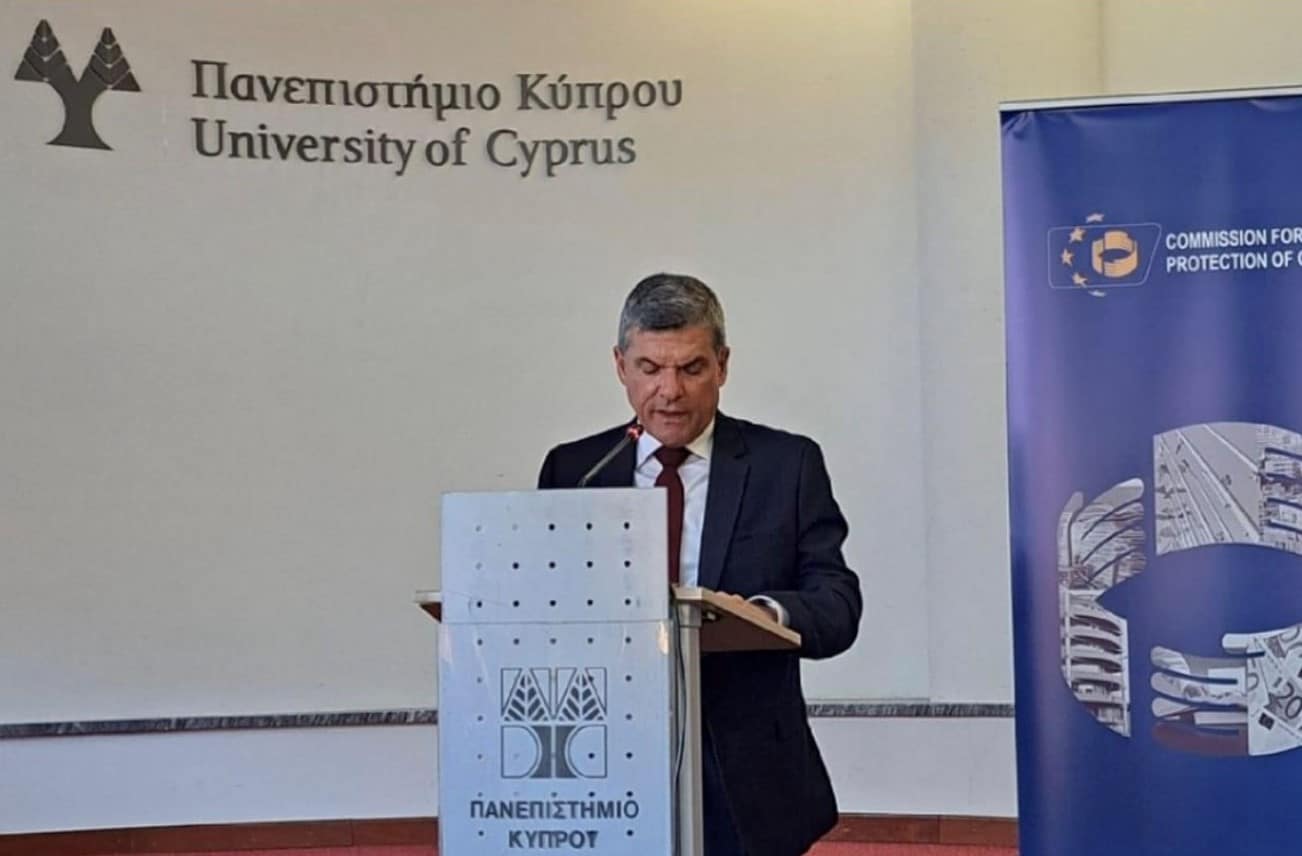Minister of Energy, Commerce, and Industry George Papanastasiou on Friday addressed the ‘Cyprus Conference on Competition Law‘, which sought to examine the key trends and developments in this area.
During his address, Papanastasiou underlined the critical role of fair trade and competition in the wake of global challenges.
Acknowledging the impact of recent crises, the minister highlighted governmental support measures totalling €256 million to bolster national economies, focusing on reducing electricity costs and taxation on essential goods.
He said that “governmental responses to the emerging conditions of international instability have been varied, but, more or less, all pointed to actively supporting the competitiveness and viability of national economies”.
“Only recently, the Cypriot government approved a new package of support measures, raising the total budget to this end to €256 million within one year of governance,” the minister said.
He explained that “these measures aim at supporting households and businesses whose incomes have been affected by the crises and inflationary pressures, with an emphasis given to reducing electricity costs, lowering taxation on transport and heating fuels, and applying a zero VAT rate on 11 basic consumer products”.
“The government is particularly sensitive to maintaining and improving the living standards of our fellow citizens and will continue to support those in need, within the context of sustainable and balanced public finances and the viable development of the Cypriot economy,” Papanastasiou said.
Moreover, the minister stated that “preserving and promoting fair competition practices in the market is a driving force for growth, as it ensures a level playing field for businesses while guaranteeing quality, choice, and fair pricing for consumers”.
The minister mentioned that the European Union acknowledges the importance of fair competition through Directive 1 of 2019, granting National Competition Authorities enhanced powers to enforce Competition Law.
This directive, he continued, ensures the autonomy, resources, and enforcement capabilities of these authorities to effectively apply EU Treaty articles and prevent market distortions.
The 2022 Protection of Competition Law strengthens the Commission for the Protection of Competition, reinforcing guarantees and enforcement powers.
Notable advancements in EU competition policy include the implementation of the Digital Markets Act, addressing market digitalisation’s impact and fostering innovation and fair consumer access to services.
He noted that the European Commission plans to review Regulation 1/2003, focusing on competition rules’ implementation.
“In these new working conditions, the Ministry of Energy, Commerce, and Industry, having the responsibility of consumer protection, closely monitors the market and maintains continuous collaboration with the Commission for the Protection of Competition and all relevant entities, with an eye to preventing market distortions, anti-competitive practices, or abuses of dominant positions in Cyprus,” the minister concluded.






Click here to change your cookie preferences